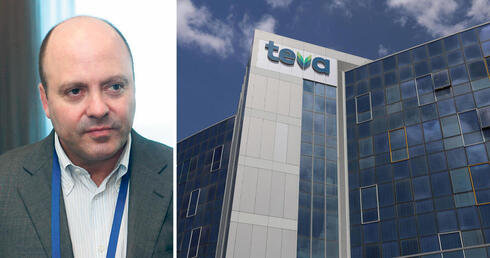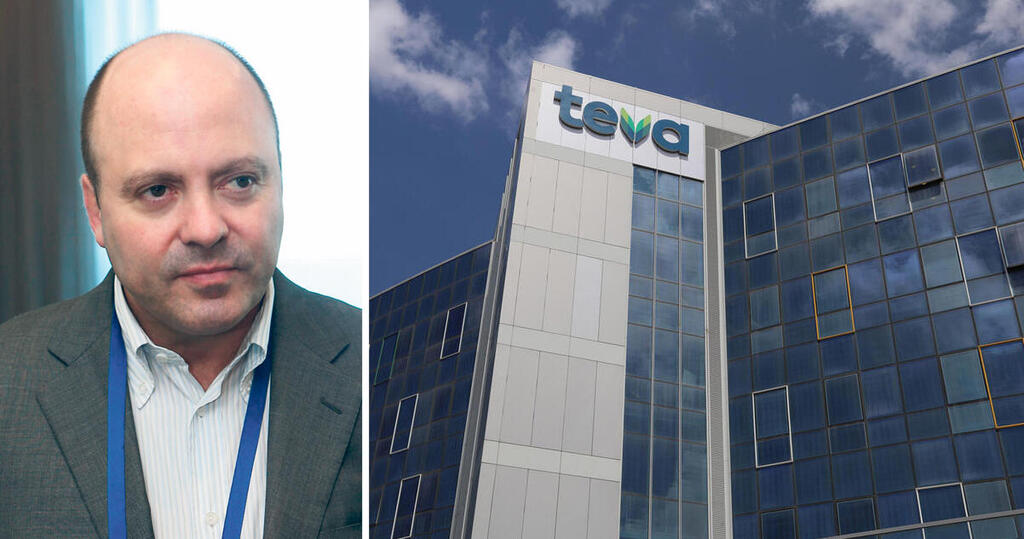
$300 million Teva bet: Will Norway's wealth fund and ION regret investing in the pharma giant?
ION, which manages investments for the Norwegian wealth fund, began a buying spree of Teva shares at the beginning of the year
The position built by the hedge fund ION in Teva has reached new highs and is estimated at more than $300 million. Against the background of the negative momentum in Teva shares in the first half of the year, the hedge fund ION Long/Short - under the management of Stephen Levey, Jonathan Half and Jonathan Kolber - increased its holding in the pharmaceutical company every quarter, and as of the end of August its holdings together with the Norwegian wealth fund, for which it manages a portfolio of investments, have reached 10.3% of the funds' investment portfolio.
The funds that ION invested in Teva are divided into two parts: an investment for a hedge fund that it manages independently and an investment made for the Norwegian wealth fund as part of an investment portfolio that it manages on its behalf. As a result, the reports that ION submits to the American Securities and Exchange Commission include the holdings it purchased for the Norwegian fund. According to estimates, ION's hedge fund includes assets totaling $650 million, and the investment portfolio of the Norwegian wealth fund managed by ION is valued at more than $2.2 billion. Norway's wealth fund, which is considered the largest in the world, has assets of approximately $1.5 trillion.
ION managers explained that usually, the holdings in their hedge fund and the Norwegian fund are in the same proportions. Therefore, the ION hedge fund currently owns Teva shares worth around $70 million and the Norwegian fund, through ION, holds $227 million worth of Teva shares. The largest holder of Teva shares among institutional investors as of the end of June is Blackrock.
The fund's managers began purchasing Teva shares in the fourth quarter of 2022 when the shares traded at prices ranging from $8.8 to $9.1. At the end of the quarter, ION held shares with an estimated value of $47 million (5.2 million shares). Most of the shares were purchased by the fund managers in the second quarter of 2023 when the momentum of Teva's share price was mostly negative. During this quarter, the fund purchased an additional 23 million shares, while Teva's share price dropped to $8.7.
Following the increase in the position, at the end of the first quarter of 2023, the value of ION's holdings in Teva increased to $245 million, and the stock became the main holding of the fund (about 9%). In the second quarter, while Teva's share price had already dropped to $7.2, ION increased its holdings by an additional 4.9 million shares, thus moving to owning 33.1 million shares worth a quarter of a billion dollars. In the months of July and August, ION continued to increase its holdings in Teva, which today is estimated at almost $300 million.
The ION Long/Short hedge fund is a fund that competes against the Tel Aviv 125 index and the American S&P 500 index and should generate an excess return over those indices. The fund employs a strategy of buying shares with the potential for an increase in value and shorting shares that are priced too high in the opinion of the fund managers.
Against the background of the holding in Teva, since the beginning of the year the fund produced a return of 0.98% compared to a return of 2.5% presented by the Tel Aviv 125 index and a return of 16.1% in the S&P index. The fund has existed since 2006 and has generated an average annual return of 10.2% compared to a return of 8.7% in the S&P and 4.2% in the Tel Aviv 125.
Teva's stock fell 14% in the second quarter of the year, the quarter during which ION made its largest purchase, and is currently trading at a value of $10.7 billion. In recent years, Teva has been dealing with its involvement in the opioid crisis in the U.S., with a financial debt of $18.5 billion and with the expiration of the patent on the drug Copaxone - its flagship drug.














